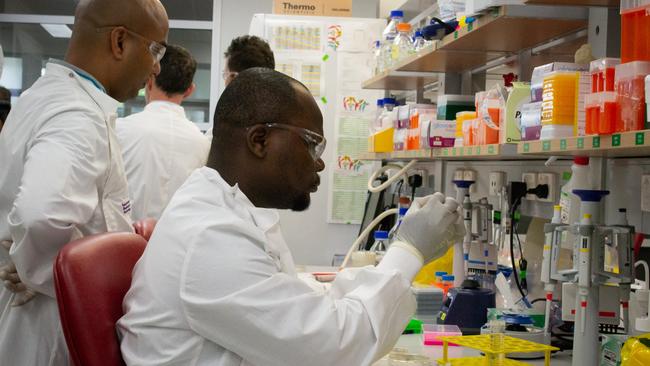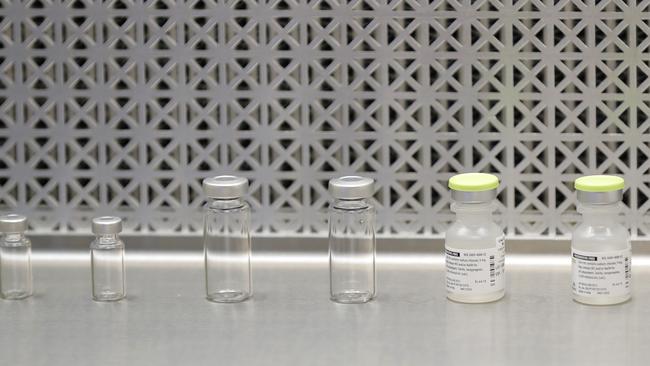Making a new vaccine is not a race, it is a lottery
Dozens of science teams have a ticket and whether they win depends on getting a lot of lucky numbers in a row.

There had always been a plan for a “Disease X situation”. By late last year the Coalition for Epidemic Preparedness Innovations (Cepi) was funding scientists across the world. It had teams looking at known viruses, trying to tease out their weaknesses and exploit their flaws.
Then, says Melanie Saville, Cepi’s director of vaccine development, in January came the moment for which it had been created.
“We came back from vacation and saw this new disease emerging,” she says. “At the very least we thought it could be a drill for a real pandemic.”
They had their Disease X and the global drive for a coronavirus vaccine began.
It is tempting to view what has happened in the two months since as a race.
In London, we hear, there’s a vaccine that tricks muscles into making coronavirus proteins. In Paris there’s one based on genetically engineering a measles vaccine. Boston has a company that is skipping human trials, Seattle has one that is injecting humans.

There is a reason, though, why Dr Saville’s organisation, which funds six out of several dozen would-be vaccines, is called a coalition. It is not only because today’s scientists prefer to focus on the less adversarial virtues of collaboration, but also because in this case science really cannot be adversarial.
From Australia to America, none of these impressive advances is cause for much hope. The hope lies in the fact that all of them are happening together.
Making a new vaccine is not a race, it is a lottery. Each of these teams has bought a ticket
and whether they win depends on getting a lot of lucky numbers in a row. Does the drug behave as they predicted? Is it effective? Is it safe? Can it be made at scale?
We will not know the answers to these questions and many more until each drug has passed three phases of human trials, totalling at least 12 months. We do know that this is when the vast majority of drugs, historically, have failed.

Cepi was set up because the process of getting to this stage was taking far too long. “We were formed in the wake of the ebola crisis,” Dr Saville said.
In 2014 and 2015, West African society was breaking down because of an uncontrollable outbreak of the virus. The frustrating thing was it should not have been uncontrollable. “Despite a decade of research, nothing was available to help,” Dr Saville said.
The world needed a body to co-ordinate a response, and to be proactive in the face of pandemic.
"...in the search for an effective vaccine against #COVID19. The speed at which this vaccine candidate has entered clinical trials, nine and a half weeks after the release of the virus’s genetic sequence, is a monumental achievement..." 👩â€ðŸ”¬ðŸ”¬ (2/4)
— CEPI (@CEPIvaccines) March 16, 2020
Cepi, which is funded by the Bill and Melinda Gates Foundation alongside countries including Britain, was the result.
Now, sooner than most had wanted, it is facing its first real test. And because so many vaccines are in play, the world’s virologists are confident that at least one will win the drug-testing lottery and enter production. “Our aspiration is to have millions of doses available in 12-18 months,” Dr Saville said.
The Times



To join the conversation, please log in. Don't have an account? Register
Join the conversation, you are commenting as Logout